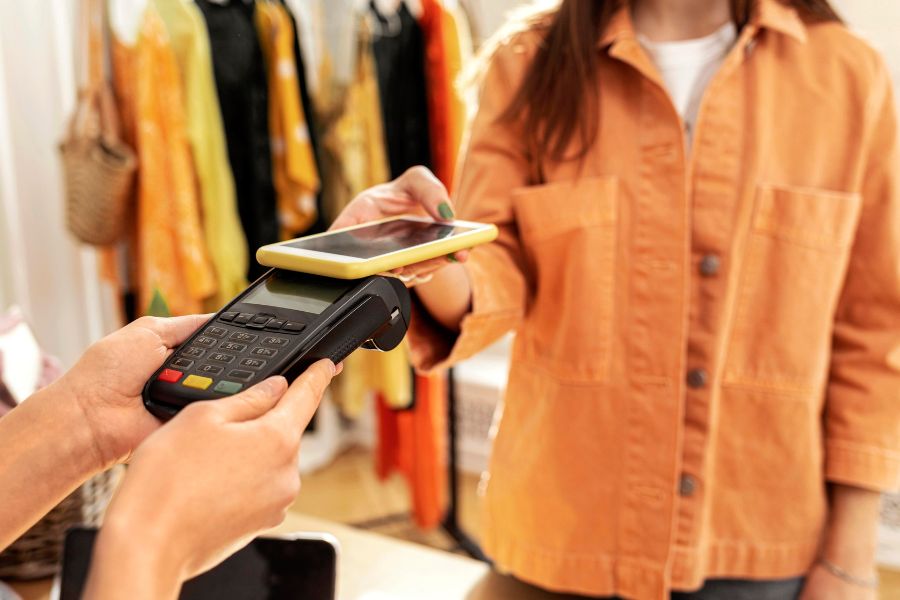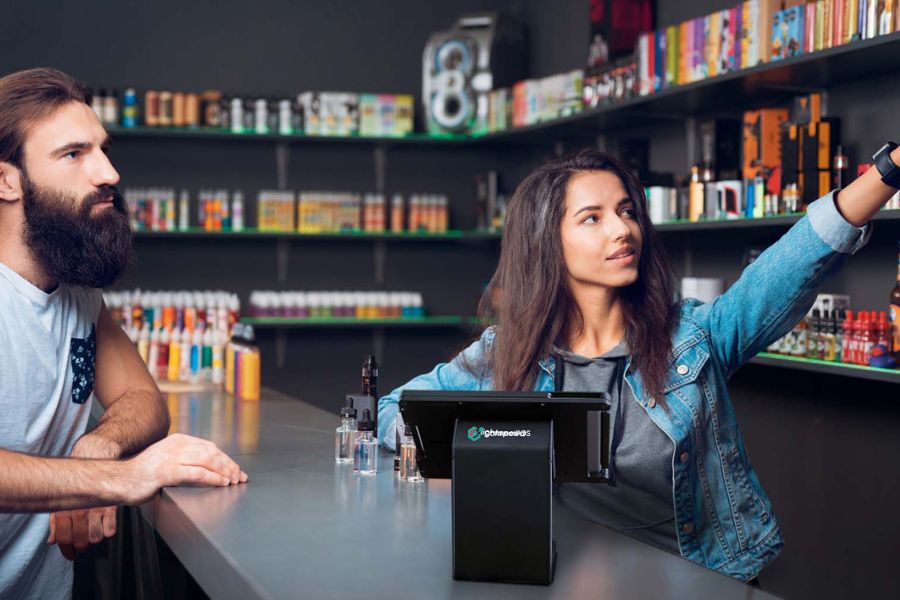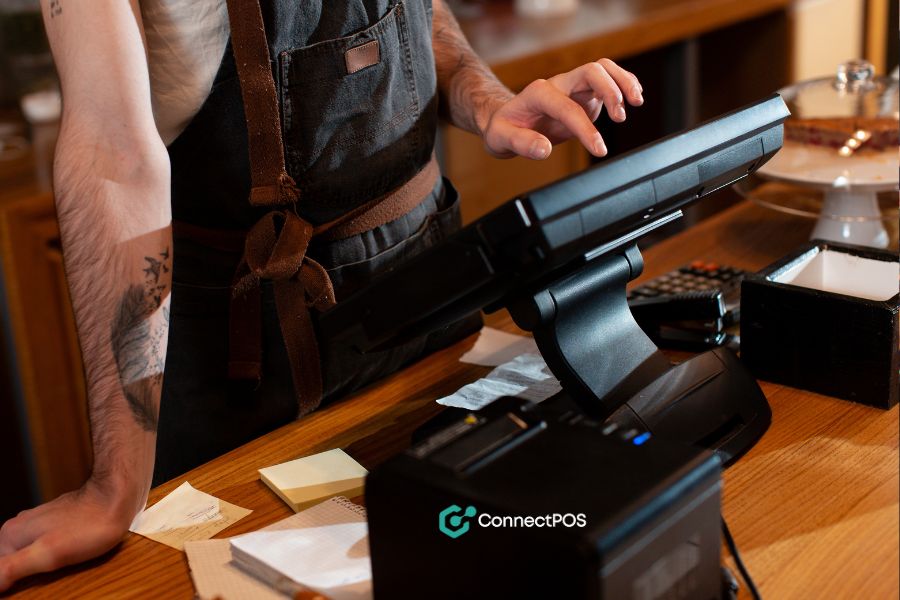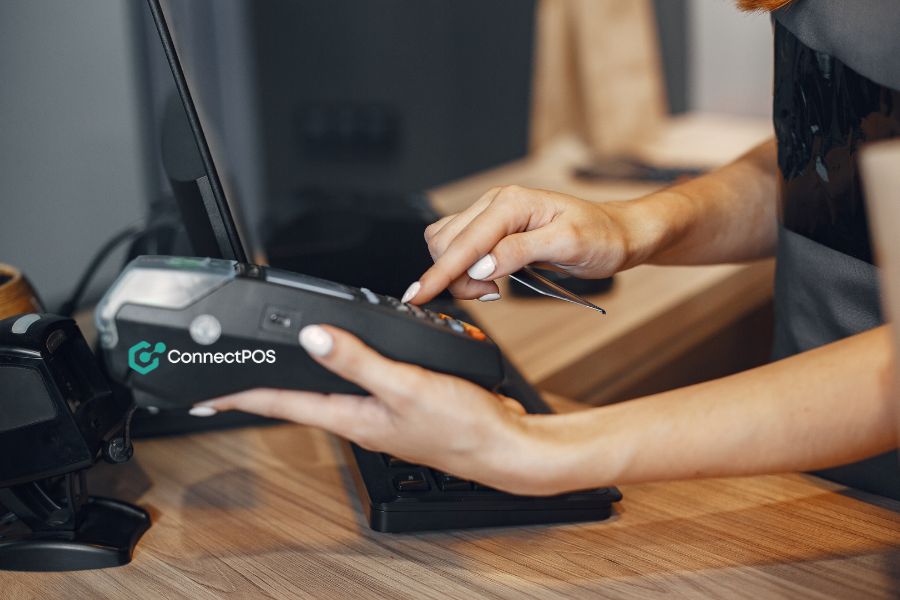Running a boutique today means balancing creative vision with operational efficiency, and that’s where the right technology makes a difference. A POS system is useful for managing day-to-day tasks like ringing up sales, tracking inventory, and understanding customer behavior. But while the benefits are appealing, there are trade-offs to consider. This article outlines the advantages and limitations of setting up a POS system for a boutique, so you can decide if it’s the right move for your store.
Highlight:
- A POS system streamlines checkout, tracks stock in real-time, and prevents overselling, improving efficiency.
- System downtime, software integration issues, and data security regulations may impact operations.
What is a POS System for Boutique?
A POS system for boutique is a software and hardware solution for retailers to manage sales, inventory, and customer interactions more easily. It handles everything from processing transactions to tracking product levels—all in one place.
The setup can differ depending on whether you sell in-store, online, or through both channels. Some systems are built for brick-and-mortar stores, while others support eCommerce integration, mobile access, or pop-up events.
Core functions of a POS system for boutique:
- Sales Processing: Facilitates quick and smooth checkout for customers. They can pay via cash, credit/debit cards, mobile payments, or gift cards.
- Inventory Management: Monitors stock levels in real time, so you can stay on top of new arrivals, low-stock alerts, and seasonal collections.
- Customer Relationship Management (CRM POS): Records customer purchase history and preferences, making it easier to personalize service and send targeted promotions.
- Multi-Channel Selling: Syncs online and in-store activity so pricing, inventory, and product details stay consistent across all sales platforms.
- Employee Management: Tracks employee performance, manages shift schedules, and controls system access based on roles.
- Sales Reporting and Analytics: Breaks down sales trends, top-performing items, and peak shopping hours to guide smarter decisions.
- Returns & Exchanges: A boutique POS should support flexible return policies and exchange workflows, especially with fashion items.
- Supplier Management: Tracking incoming stock and supplier history helps manage restocks and avoid delays.
- Customization Support: Since boutiques often sell curated or limited-edition items, the ability to create custom product tags, notes, or categories adds flexibility.
Pros of Setting Up A POS System for Boutique
A POS system can bring structure and clarity to boutique operations. It simplifies routine tasks, improves how customers are served, and gives store owners like you access to real-time business data.
Enhanced Sales and Checkout Efficiency
A POS system for boutiques speeds up checkout by handling multiple types of payments, credit cards, mobile wallets, gift cards, and more. This shortens wait times and improves the shopping experience.
Retail Dive reported in 2023 that 87% of shoppers prefer stores with quick and convenient checkout. For boutique owners, that puts transaction speed at the center of customer satisfaction.
Improved Inventory Management
Manual stock updates often lead to mistakes. A POS system updates inventory automatically when new stock arrives or items are sold. This reduces the risk of overstocking or running out of popular items. Alerts for low stock and inventory reports also help you restock at the right time, especially during seasonal spikes.
Better Customer Relationship Management (CRM)
A boutique POS can store data like customer purchase history, product preferences, and contact details. This makes it easier to recommend related items, send targeted offers, or run loyalty programs. Over time, personalized service increases repeat visits and builds stronger relationships with shoppers.
Streamlined Business Operations
Boutiques often rely on separate tools to manage orders, staff, and reporting. A POS system brings those tasks into one platform. This cuts down on daily admin work and improves consistency. For stores with more than one location, a central dashboard improves coordination across teams.
Data-Driven Decision Making
Sales trends, bestsellers, and customer habits are all easier to analyze when data is organized in one place. This way, you can make faster decisions about pricing, promotions, or stock planning, without relying on guesswork.
Research by McKinsey & Company found that businesses using real-time analytics see a 5 to 10 percent increase in profitability. For boutiques, these insights can directly influence growth.
Cons of Setting Up A POS System for Boutique
Many boutiques benefit from using a POS system, but there are trade-offs. These challenges can affect setup, daily use, and long-term planning.
Initial Setup and Investment Costs
POS systems require investment in hardware like barcode scanners, receipt printers, and payment terminals. Software plans often include monthly fees, plus extra charges for support, updates, or processing rates. For small boutiques, these costs can be tough to manage early on.
Learning Curve and Training
Switching from manual processes to a POS system takes time. Staff need to learn new workflows, and productivity may dip during the adjustment period. If your employees are not familiar with digital tools, mistakes can occur during checkout or inventory updates.
Technical Issues and System Downtime
POS systems can experience software bugs, hardware malfunctions, or internet outages. If the system goes offline, transactions may pause entirely. This can frustrate customers and disrupt sales.
Choosing a POS with offline mode and automatic data sync can reduce these risks, but it’s also smart to have a manual backup plan ready.
Compatibility and Integration Challenges
Modern boutiques often use accounting platforms, online stores, marketing apps, and CRM tools. A POS system needs to work smoothly with these existing systems to avoid data mismatches or time-consuming manual entry.
Not all POS providers support wide integration. If your system doesn’t connect easily, you may end up spending more time fixing errors than running your store.
Compliance and Legal Considerations
POS systems store sensitive customer information, including payment data and personal contacts. Boutique owners must follow data protection laws like PCI DSS and GDPR. Failing to follow these regulations can lead to data breaches, fines, and reputational damage.
Common risks include:
- Unauthorized access to customer data
- Penalties for violating security standards
- Disruptions caused by audits or legal investigations
Look for systems with secure login controls, encrypted transactions, and clear user permissions. Your staff should also receive basic training on how to handle customer data safely.
Checklist for Selecting the Right POS System for Your Boutique
This checklist will guide you in selecting a suitable POS system for your boutique for long-term growth.
- Identify Business Needs and Priorities
Before comparing systems, clarify what matters most to your business:
- Sales Channels: Do you sell in-store only, online, or both (omnichannel)?
- Inventory Management: Do you need real-time stock tracking and multi-store management?
- Customer Experience: Would you benefit from loyalty programs and CRM tools?
- Payment Methods: Does your boutique require contactless, mobile, or multi-currency payments?
- Budget: What is your budget for initial setup, monthly fees, and hardware costs?
- User-Friendliness: How easy is it for staff to learn and use the system?
- Compare Cloud-Based vs. On-Premise Systems
Each setup comes with trade-offs. Consider how you run your boutique and how much control you want over your tech infrastructure.
Cloud-Based POS (e.g., ConnectPOS, Square POS):
- Accessible from any internet-connected device
- Lower upfront costs with subscription pricing
- Automatic updates and cloud backups
- Best suited for boutiques with online stores or multiple locations
On-Premise POS (e.g., Retail Pro, NCR Counterpoint)
- Higher initial cost but no recurring subscription fees
- Requires in-house maintenance and manual updates
- Limited remote access unless paired with cloud services
- Preferred by boutiques that want full control over data and hardware
- Evaluate Features, Scalability, and Support
A feature-rich and scalable POS system ensures long-term efficiency and growth. Look for:
- Inventory Management: Tracks stock across multiple locations, alerts for low inventory
- Sales Reporting & Analytics: Provides insights into sales trends, best-selling items
- CRM & Loyalty Programs: Helps retain customers with discounts, memberships, and promotions
- Payment Flexibility: Accepts credit cards, mobile payments, BNPL (Buy Now, Pay Later)
- Seamless Integrations: Works with e-commerce platforms, accounting tools (QuickBooks, Xero)
- Multi-Device Compatibility: Supports tablets, desktops, and mobile POS solutions
- 24/7 Customer Support: Round-the-clock assistance via chat, phone, or email to keep operations running smoothly
ConnectPOS – A Trusted POS System for Your Boutique
ConnectPOS is a cloud-based POS solution that supports boutique retailers across both physical and digital storefronts. It combines tools that improve day-to-day operations while creating a smooth checkout and customer experience.
Key features that fit boutique retail include:
- Omnichannel Selling: Sync transactions and product data across your physical store, online shop, and mobile devices. This keeps inventory and pricing consistent for customers shopping through different channels.
- Real-Time Inventory Management: Track stock availability across multiple store locations. Get alerts for low inventory and spot discrepancies early, reducing overstocking and missed sales opportunities.
- Flexible Payment Options: Accept credit cards, mobile payments, and contactless transactions, speed checkouts, and meet different customer preferences.
- Personalized Customer Experience: Store customer profiles, past purchases, and preferences. You can use this information to offer personalized recommendations or loyalty rewards.
- Seamless Integration: ConnectPOS integrates with major e-commerce platforms like Shopify, Magento, and WooCommerce, as well as accounting software and third-party apps.
- Secure and Reliable: PCI DSS-compliant features and secure transaction processing protect both your business and your customers’ payment information.
- Multi-Device Access: Use it on desktop terminals, tablets, or mobile devices. This is especially useful for mobile checkouts, pop-up events, or boutiques with limited counter space.
FAQs: POS System For Boutique
- What are the must-have features in a boutique POS system?
Inventory management, multi-channel sales, CRM, flexible payment options, sales reporting, employee management, and seamless integration with e-commerce platforms.
- Can I integrate my POS with an e-commerce store?
Yes, many POS systems sync with platforms like Shopify, WooCommerce, and Magento, enabling real-time inventory and unified sales management.
- How can a POS system improve my boutique’s profitability?
It streamlines operations, reduces stock errors, enhances customer retention, speeds up checkout, and provides data-driven insights for better decision-making.
Conclusion
In sum, implementing a POS system in a boutique is a strategic move that improves operational efficiency, improves inventory control, and elevates the customer experience. While challenges such as setup costs, integration complexities, and data security concerns exist, the long-term benefits often outweigh these hurdles. For boutique owners ready to future-proof their business, a robust POS system is the key to unlocking sustainable growth and profitability.
Interested in learning more about ConnectPOS’s capabilities or suitability with your boutique? Don’t hesitate to contact us today.
ConnectPOS is a all-in-one point of sale solution tailored to meet your eCommerce POS needs, streamline business operations, boost sales, and enhance customer experience in diverse industries. We offer custom POS with features, pricing, and plans to suit your unique business requirements.




